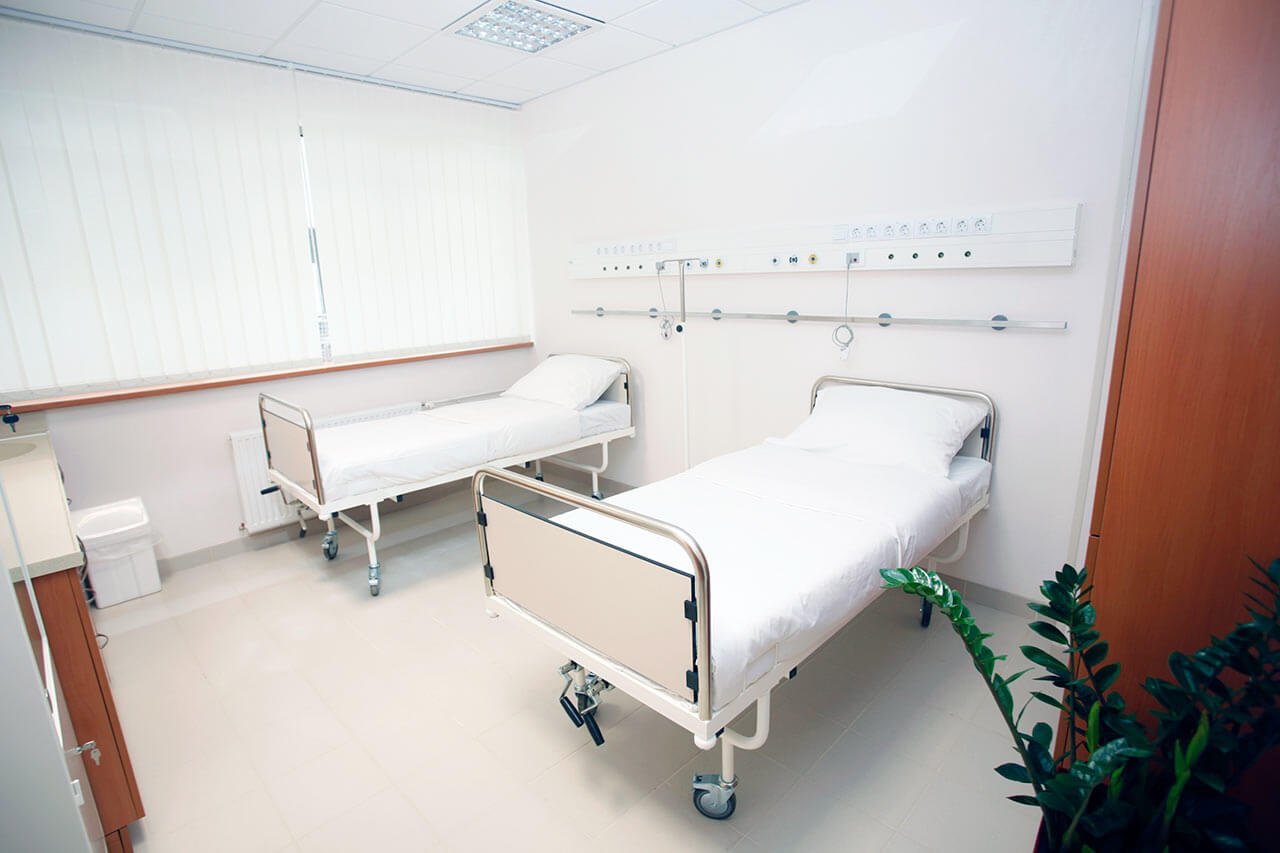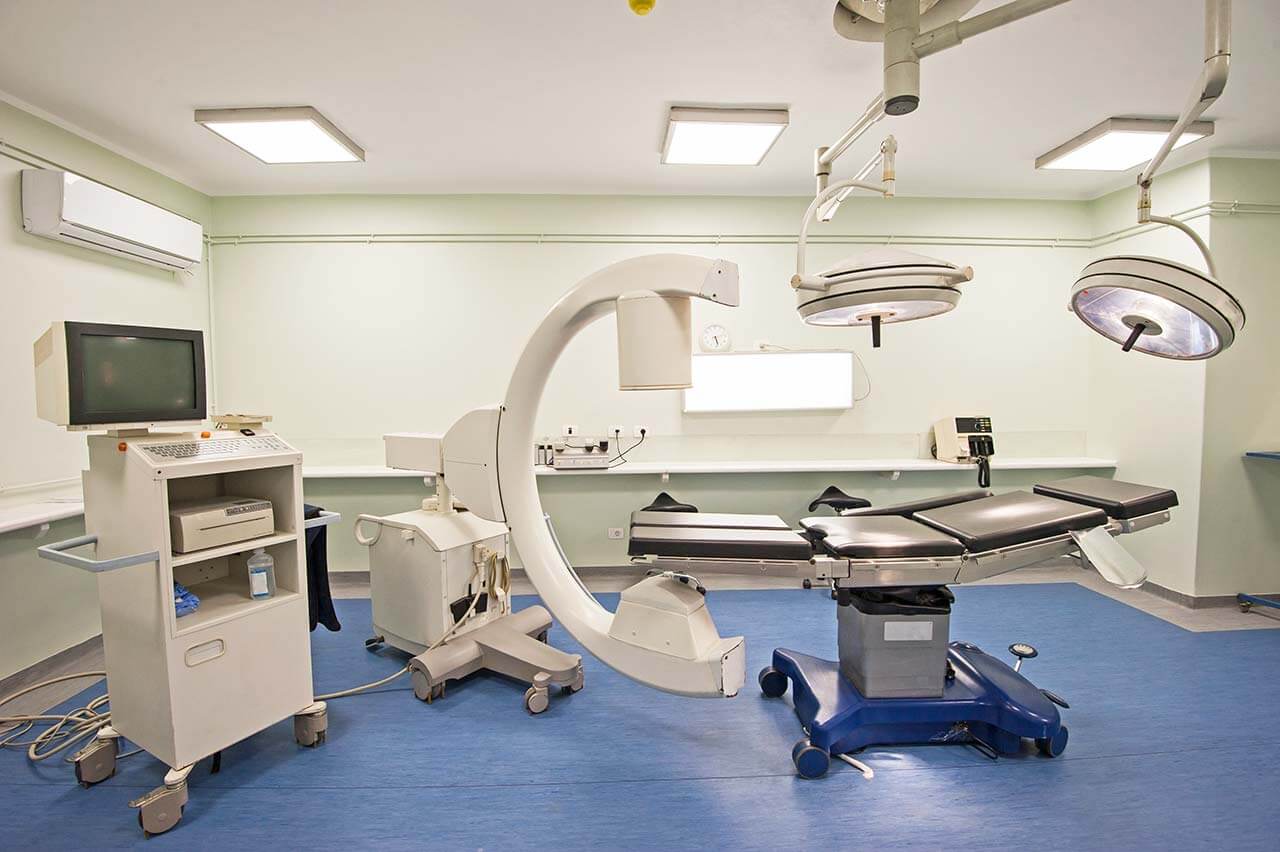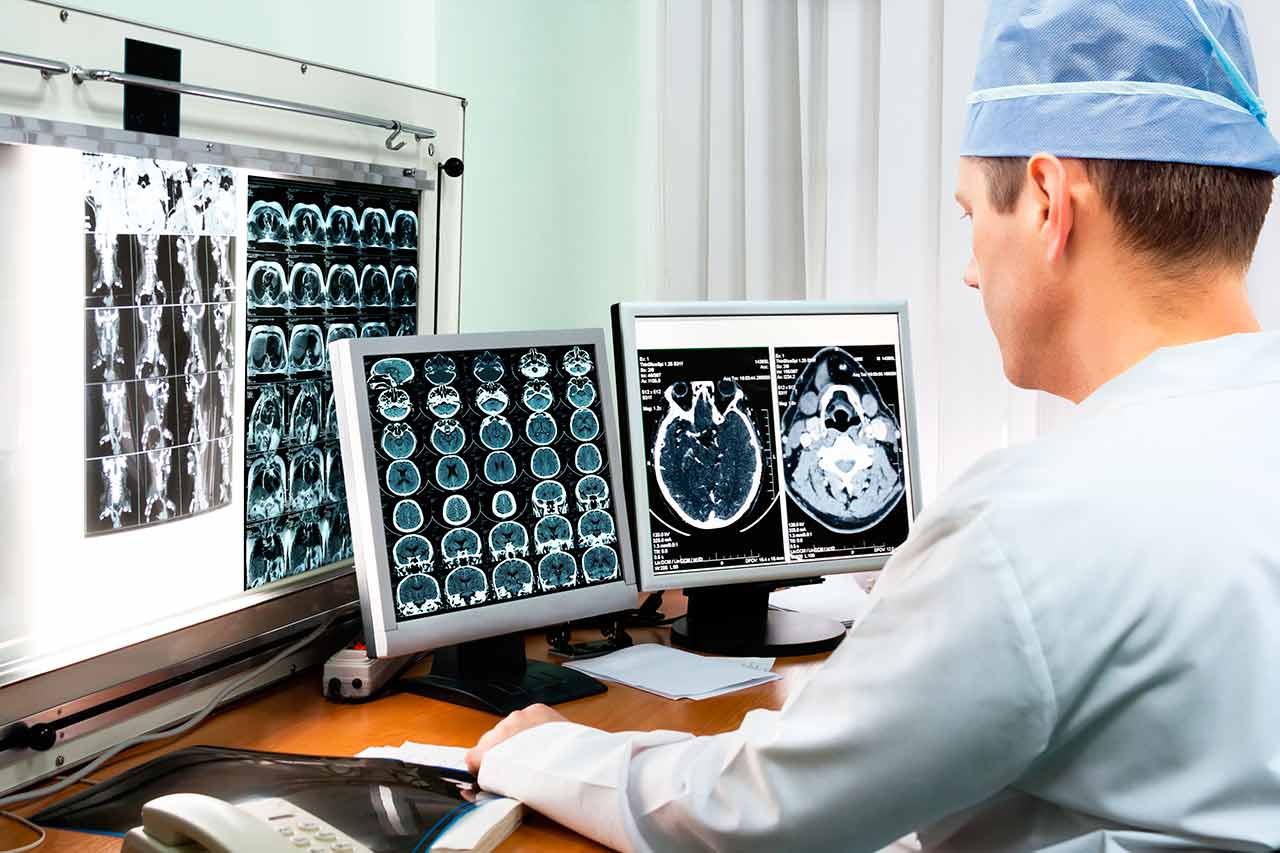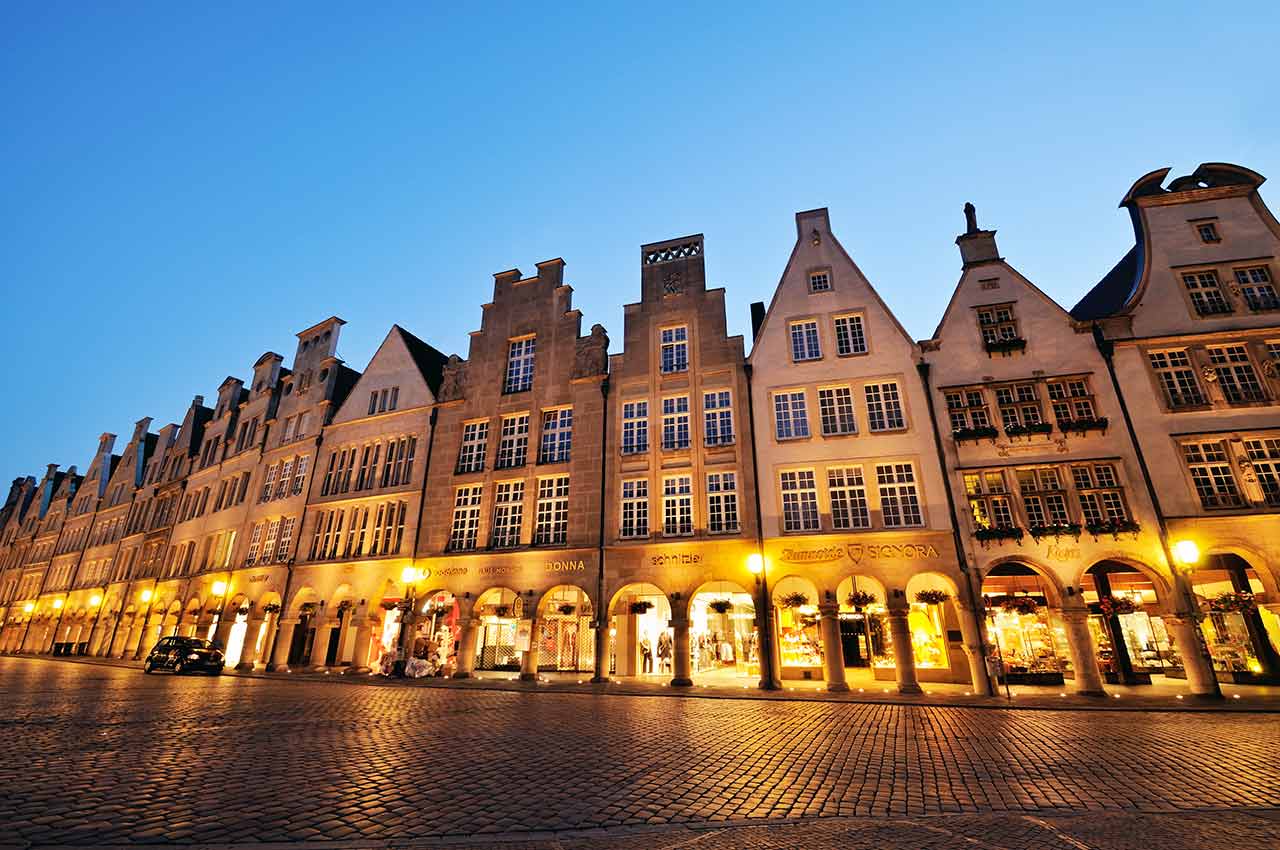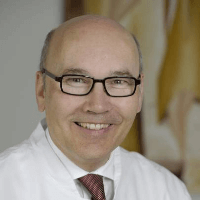
The program includes:
- Initial presentation in the clinic
- clinical history taking
- review of medical records
- physical examination
- laboratory tests:
- complete blood count
- biochemical analysis of blood
- Lipid metabolism (HDL/LDL, cholesterol,
triglycerides Lip(a), homocysteine) - blood coagulation analysis (aPTT, PT, INR)
- inflammation indicators (CRP, ESR)
- metabolic status (uric acid, total glucose, HbA1c)
- cardiovascular disease risk markers
- kidney function test (creatinine, urea)
- color doppler echocardiography
- color doppler sonography of renal arteries
- duplex renal arteries
- CT/ MRI-angiography of renal arteries
- preoperative care
- angioplasty of renal artery with implantation of stents (max. 2)
- blood transfusions (if needed)
- symptomatic treatment
- control examinations
- the cost of essential medicines and materials
- nursing services
- full hospital accommodation
- developing of further guidance
Required documents
- Medical records
- Doppler ultrasound/duplex scanning of the renal arteries (if available)
- Renal angiogram (if available)
Service
You may also book:
 BookingHealth Price from:
BookingHealth Price from:
About the department
The Department of Adult and Pediatric Diagnostic, Interventional Radiology, Neuroradiology at the University Hospital Muenster is one of the best institutions of its kind in Germany and offers patients the full range of radiological studies and imaging-guided minimally invasive therapy. The department’s scope of tasks also includes imaging diagnostics in children of all age groups, detection and invasive treatment of cerebral vascular pathology (neuroradiology). Patient care is provided both on an inpatient and outpatient basis. The department is headed by Prof. Dr. med. Walter Heindel.
In addition to the conventional diagnostic methods, namely CT and PET-CT, as well as MRI and PET-MRI, the department specializes in radiological senology (diagnostics of the female and male mammary glands). Depending on the examination purpose, digital mammography, digital tomosynthesis, high-frequency ultrasound with various methods of biopsy sampling can be used. Radiological senology is the central component of the certified Breast Center and one of the 15 centers in Germany participating in the project of German consortium for the examination of family oncological diseases of the breast and ovaries.
The department is also fitted out with the equipment for diagnostic angiography and minimally invasive interventions. It performs about 1,500 imaging-guided examinations and therapeutic procedures. The possibilities of CT, MRI, and catheter angiography are available for the diagnostics of thrombosis. These methods are used in the case of both arterial and venous lesions. The choice of a method depends on the examination purpose. If CT or MRI scans are used for the examination of arteries and veins, then catheter angiography serves to diagnose and treat vascular diseases.
The service range of the department includes:
Diagnostic radiology
- Computed tomography (CT) and positron emission computed tomography (PET-CT)
- Magnetic resonance imaging (MRI) and positron emission magnetic resonance imaging (PET-MRI)
- Radiological senology
- Digital mammography
- Digital tomosynthesis
- High-resolution ultrasound, including color doppler and elastography
- Biopsy under ultrasound, X-ray and MRI guidance
- Examination for determination of the cancer stage with the use of MRI and CT before surgical intervention
- Angiography (method for the diagnostics of blood vessels)
- Ultrasound examinations
- Radiography
- Other radiological examinations
Imaging-guided minimally invasive treatment of vascular diseases
- Elimination of chronic and acute stenosis or occlusion of the pelvic vessels and leg arteries using modern technologies (balloon angioplasty and stenting)
- Elimination of chronic or acute stenosis or the arterial occlusion of the internal organs using modern technologies (balloon angioplasty and stenting)
- Elimination of chronic or acute stenosis or shunt vascular occlusion for hemodialysis
- Treatment of stenosis or renal arterial occlusion
- Treatment of secondary complications after aneurysm therapy (embolization in endoleakage, vascular recanalization, etc.)
- Treatment of vascular anomalies on the trunk, internal organs and limbs in children and adults
- Other minimally invasive techniques
Imaging-guided minimally invasive treatment of oncological diseases
- Liver tumors
- Transarterial chemoembolization
- Intra-arterial embolization
- Selective internal radiation therapy
- Radiofrequency ablation
- Microwave ablation
- Occlusion of the affected vessels before surgery on the musculoskeletal system and internal organs
- Other services
Other therapeutic options
- Implantation of transjugular portosystemic shunts for the treatment of portal hypertension, etc.
- Gynecological embolization (for the treatment of uterine fibroids, Iliac vein compression syndrome, pelvic congestion syndrome)
- Treatment of prostatic hyperplasia (prostatic embolization)
- Male varicocele treatment (embolization/sclerotization)
- Other services
Pediatric radiology (examinations in children of all age groups, including newborns and young children)
- Ultrasound examinations of all organs and anatomical structures
- X-ray
- Magnetic resonance imaging (MRI)
- Computed tomography (CT)
- Other services
Neuroradiology
- Diagnostics of disorders of the central and peripheral nervous system (brain and spine) with neuroimaging techniques
- Catheter recanalization of blood vessels in case of stroke (around the clock)
- Stenting of the carotid artery and other brain supplying vessels
- Closure of cerebral aneurysms
- Embolization (closure) of cerebral arteriovenous malformations and dural fistulas
- Embolization (closure) of tumor supplying vessels of the facial soft tissues (facial angiomas)
- Catheter embolization (closure) of the vessels of skull base tumors prior to surgery
- Vascular embolization to stop uncontrolled nasal bleeding
- Other services
Curriculum vitae
- 1978 - 1984 Study of Medicine at the University of Erlangen and admission to medical practice.
- 1985 Defense of doctoral thesis with honors (magna cum laude).
- 1984 - 1988 Further education and qualifications in the field of Radiology, Institute of Radiological Diagnostics, University of Cologne (Director: Prof. Dr. G. Friedmann and Prof. Dr. K. Lackner).
- 1990 Medical Specialist in Radiology.
- 1990 - 1993 Project Head of the German Research Foundation, "Imaging-guided volumetric selective MR-spectroscopy".
- 1991 William Conrad Rontgen Award.
- 1991 Habilitation, Clinical Radiology.
- 1994 Specialization in Neuroradiology.
- 1997 Hermann Holthusen Ring Award.
- Since 1998, Professor of Radiology at the Faculty of Medicine and Head of the Department of Adult and Pediatric Diagnostic, Interventional Radiology, Neuroradiology at the University Hospital Muenster.
- Since 2005, Foundation of the Mammography Expert Center at the University Hospital Muenster.
- 2009 Extension of the Mammography Center (systems from 1.5 to 9.4 Tesla).
- 2012 Foundation of the Translational Imaging Research Center and the Сenter for Clinical Research in Radiology.
- Since 2012, Managing Editor of RöFo.
- 2013 Foundation of a modern infrastructure for percutaneous interventions in all areas of the vessels (Angio Suite).
- 2016 University Professor, Translational Radiology.
- Since 2016, Member of the Ethics Committee ÄKWL and WWU Muenster.
Main Research Focuses
- Early detection of the diseases with imaging diagnostics (screening, molecular diagnostics, innovative diagnostic methods).
- Imaging-guided minimally invasive treatment.
Memberships
- German Society of Radiology (DRG).
- German Society of Neuroradiology (DGNR).
- German Society of Interventional Radiology and Minimally Invasive Therapy (DeGIR).
- German Society of Senology (DGS).
- German Society of Ultrasound in Medicine (DEGUM).
- German Society of Cardiology, Cardiovascular Research (DGK).
- German ISMRM e.V. Unit.
- European Society of Radiology (ESR).
- Radiological Society of North America (RSNA)
- International Society for Magnetic Resonance in Medicine (ISMRM).
Additional Qualifications
- Special training for Medical Examiners.
- Specialization in radiological examinations of the musculoskeletal system (levels 1 and 2).
- Qualification in Interventional Radiology/Neuroradiology DeGIR/DGNR, Level 2 (Modules A, B, C, D, E, F).
- Breast ultrasound diagnostics, DEGUM, 1 level.
- DEGIR Instructor in Interventional Radiology.
- Q3 Instructor in cardiac CT and MRI.
Scientific Editorial Boards
- Founding Member, RadiologyUp2Date.
- Scientific Editorial Board Member, European Radiology.
- Editorial Board Member and Managing Editor, RöFo.
Photo of the doctor: (c) Universitätsklinikum Münster
About hospital
According to the Focus magazine, the University Hospital Muenster ranks among the top German hospitals!
The hospital belongs to the most prestigious medical institutions in Germany. The hospital is distinguished by a high professionalism of its doctors, state-of-the-art technological equipment and the availability of the most advanced diagnostic and therapeutic capabilities ensuring the first-class medical services. The hospital integrates more than 30 specialized departments, as well as numerous institutes and centers, thus representing all the specialties of modern medicine. The hospital treats more than 64,000 inpatients and 500,000 outpatients every year, which is an indisputable evidence of the highest quality of medical services.
The medical team of the hospital, consisting of more than 10,000 employers, is committed to preserving the physical health of patients, providing them with psychological support and compassionate attitude throughout the entire therapeutic process.
The hospital has succeeded in all specialties of medicine, however, main areas of its specialization include oncology, treatment of cardiovascular, neurological diseases, transplant medicine, psychiatry and psychosomatics, pediatrics with a special focus on rare diseases in children, traumatology, orthopedics, prenatal medicine, and reproductive medicine. In addition, key importance is given to scientific research and training of medical students, so that the specialists of the hospital make a momentous contribution to the development of medicine as a whole.
Photo: (с) depositphotos
Accommodation in hospital
Patients rooms
The patients of the University Hospital Muenster live in single or double rooms. The rooms are made in bright colors and modern design. Each room has an ensuite bathroom with shower and toilet. The standard room includes an automatically adjustable bed, a bedside table, a table and chairs for receiving visitors, a telephone and a TV. The hospital offers access to the Internet. If desired, the patient can also stay in the enhanced-comfort room.
Meals and Menus
The patients of the hospital are offered a tasty and balanced three meals a day: breakfast, lunch and dinner. The menu always features diet and vegetarian dishes. If for any reason you do not eat all the food, you will be provided with an individual menu. Please inform the medical staff about your dietary preferences prior to the treatment.
Further details
Standard rooms include:
Religion
Religious services are available upon request.
Accompanying person
During the inpatient program, an accompanying person may stay with you in a room or at the hotel of your choice.
Hotel
During the outpatient program, you can live at a hotel of your choice. Managers will help you to choose the most suitable options.
The hospital offers a full range of laboratory tests (general, hormonal, tests for infections, antibodies, tumor markers, etc.), genetic tests, various modifications of ultrasound scans, CT scans, MRI and PET / CT, angiography, myelography, biopsy and other examinations. Treatment with medications, endoscopic and robotic operations, stereotaxic interventions is carried out here, modern types of radiation therapy are also used. The hospital offers patients all the necessary therapeutic techniques.
- Stereotactic radiotherapy, including intracranial one
- Thulium and holmium laser enucleation of the prostate
- HIPEC for peritoneal cancer
- Imlantation of mechanical heart support systems
- Assisted reproductive technologies
These are arthrosis and sports injuries of the joints, benign neoplasms and malignant tumors of various localizations, spinal injuries, osteoporosis, benign prostatic hyperplasia, urolithiasis, inflammatory bowel disease and other pathologies.
- Traumatology and hand surgery
- Urology
- General and abdominal surgery
- Cardiology and cardiac surgery
- Obstetrics and gynecology
The hospital's team consists of more than 10,000 highly qualified employees.
